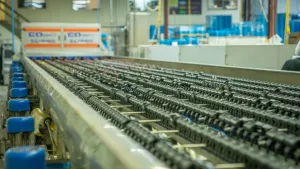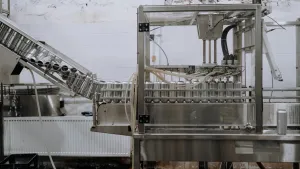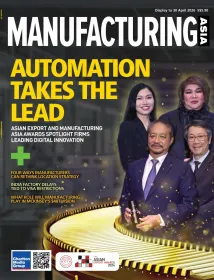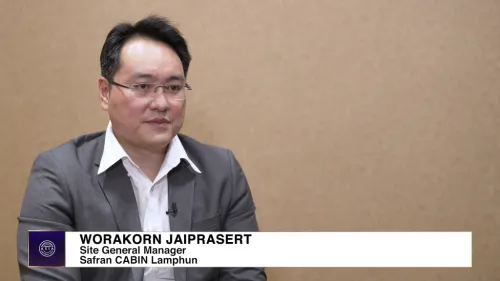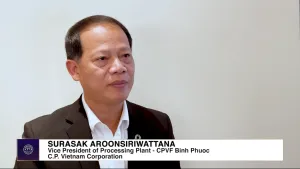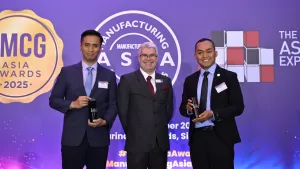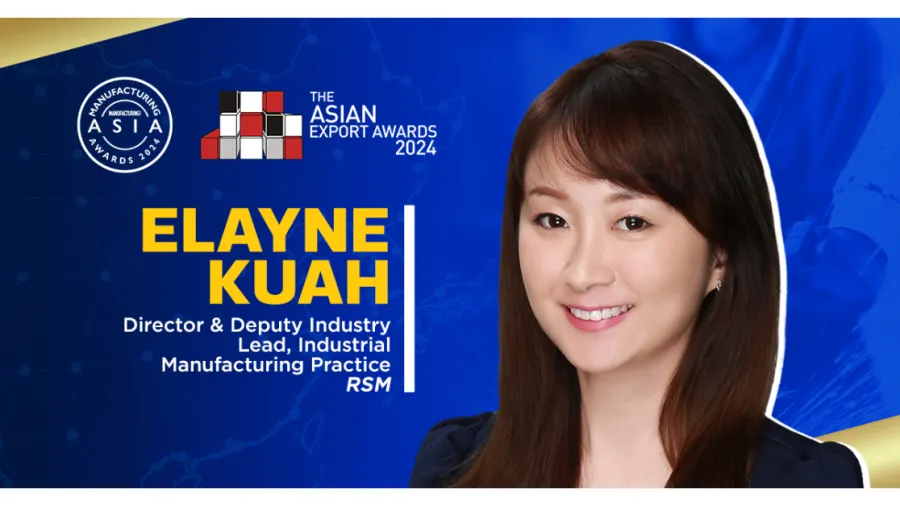
RSM Singapore’s Elayne Kuah: Align with national goals and customer demands to remain competitive
She emphasises the importance of embracing agility and sustainability to navigate challenges and seize opportunities in the evolving manufacturing landscape.
As the global landscape evolves, companies in the manufacturing and export industries strive to adapt to shifting market conditions and navigate a complex array of challenges and opportunities all whilst remaining at the forefront of the business.
Offering valuable insights is Elayne Kuah, Partner (Designate) & Deputy Industry Lead, Industrial Manufacturing Practice at RSM Singapore, who brings over a decade of experience since joining the firm in 2009. Her extensive experience spans serving public-listed and privately-owned companies in a diverse range of sectors, including manufacturing, food and beverage, retail, and healthcare, as well as working with MAS-regulated entities.
Throughout her career, Kuah has successfully managed various grant assurance engagements including IPO and RTO assignments. Her commitment to excellence is further underscored by her membership in the Institute of Singapore Chartered Accountants (ISCA).
As a judge at the 2024 Manufacturing Asia Awards and Asian Export Awards, Kuah highlights how by embracing agility, investing in workforce development, adopting sustainable practices, utilising technology, and leveraging data analytics can enable companies to thrive in an ever-changing competitive landscape.
How would you evaluate the performance of the manufacturing and export industries in the past year? What should companies note about this?
Over the past year, the manufacturing and export industries in Asia, particularly in Singapore, have faced mixed performance due to global supply chain disruptions and inflationary pressures. However, sectors such as electronics saw sustained demand, driven by advancements in technology. Overall, the industries demonstrated both growth and resilience amidst various challenges.
Companies in Singapore should focus on enhancing supply chain resilience by diversifying suppliers and investing in local production. Agility and adaptability to market changes are crucial with technology and innovation playing key roles in boosting productivity. Sustainability is also becoming increasingly important, as investments in green technologies and sustainable practices provide a competitive edge. These steps will help companies effectively navigate future challenges and seize opportunities.
Drawing from your extensive experience, what are some of the common challenges and issues that manufacturing companies faced this past year? What factors have brought these issues on?
Companies have faced continuous challenges driven by global economic and geopolitical dynamics.
Supply chain disruptions remain an issue, and we can see reshoring trends that have also altered material flows.
Rising inflation has increased the costs of raw materials and energy, squeezing profitability. Labour shortages and a lack of skilled talent in emerging technologies have further strained operations. Additionally, integrating advanced technologies such as AI, automation, and digitalisation remains costly.
Stricter environmental regulations and the growing emphasis on sustainability have also required companies to make substantial investments in green technologies and practices. These challenges reflect the shifting global landscape and the urgent need for both innovation and adaptation. Companies need to focus on building robust supply chains, investing in workforce development, and adopting cost-effective measures to mitigate these challenges.
With your experience serving clients in the manufacturing industry, how do you see sustainability and environmental responsibility shaping their modern operations and how important is this facet going to be in the coming years?
There has been a growing emphasis on sustainability and environmental responsibility and companies are now more committed than ever to reducing their carbon footprint and embracing renewable energy sources. Manufacturers are adopting innovative technologies to minimise waste and energy consumption, which not only benefit the environment but also reduce costs. This trend is driven by both regulatory pressures, a heightened awareness of the impact of industrial activities and a growing consumer preference for sustainable products.
In the coming years, the focus on sustainability is expected to intensify, as governments continue to introduce stricter environmental regulations and industries face increasing scrutiny from both investors and stakeholders. Companies that prioritise sustainability will likely enjoy long-term benefits, including greater resilience to market changes, improved risk management, and a stronger brand reputation.
In regions like Singapore, initiatives such as the Green Plan 2030 underscore the importance of reducing carbon emissions and boosting renewable energy production. Aligning with these national goals and consumer expectations is essential for maintaining a competitive edge in the global market.
What strategies can you recommend to manufacturing companies so they may successfully balance the need to innovate their operational processes whilst ensuring the quality and reliability that often defines their products?
To successfully balance innovation with quality and reliability, manufacturing companies should adopt a phased and structured approach to innovation, where changes are made incrementally and tested at every stage of the process.
Companies can also utilise technology and leverage data analytics to monitor and improve both innovation and quality metrics, ensuring consistent quality standards. Proactive maintenance of equipment can reduce or prevent downtime, maintaining reliability whilst leveraging predictive maintenance technologies can further support this goal. Regular training and development programmes for staff are essential to ensure they are equipped with the latest skills and knowledge to support these initiatives. Lastly, regular quality audits and reviews of feedback and operational data are essential to ensure that innovations align with quality standards.
As a returning judge at the Manufacturing Asia Awards and Asian Export Awards, what specific qualities, achievements, or innovative approaches are you going to look for in the exceptional entries for this year?
As a returning judge at these awards, I will be looking for entries that demonstrate exceptional innovation, particularly in the adoption of advanced technologies like AI to improve efficiency and productivity. Achievements in sustainability, such as reducing carbon footprints and implementing green manufacturing practices, will also be highly valued. I will pay close attention to companies that have shown resilience and adaptability in overcoming supply chain challenges. Additionally, strong leadership such as tone from top and a commitment to continuous improvement will also be key factors.

